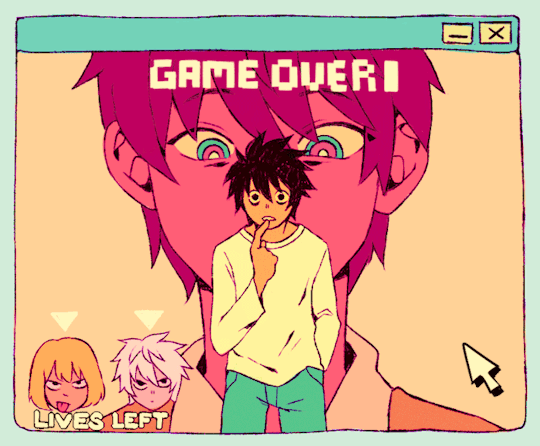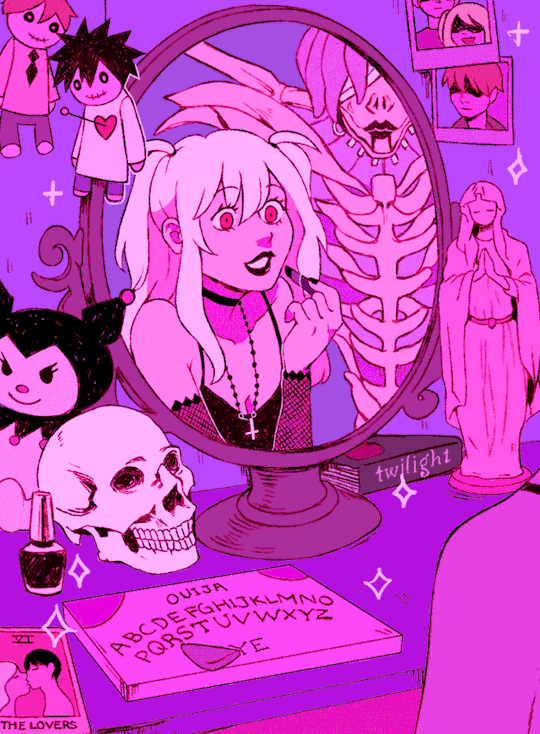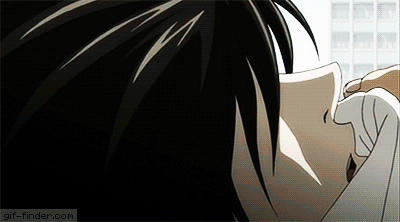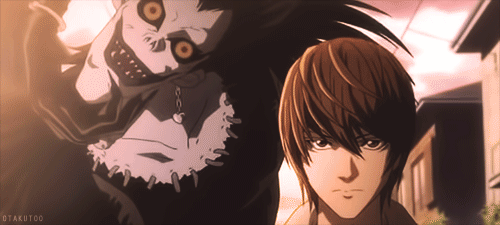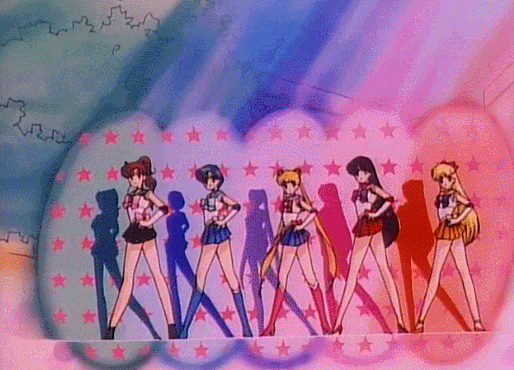just an anime nerd, paralleling your favourite animes with real life
Don't wanna be here? Send us removal request.
Text
i’m kinda in love with light yagami sooo
0 notes
Photo
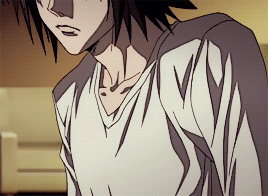
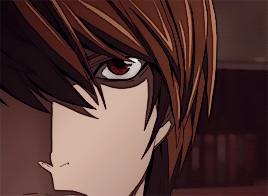
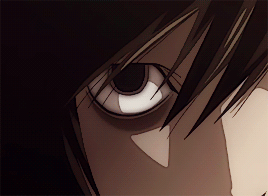
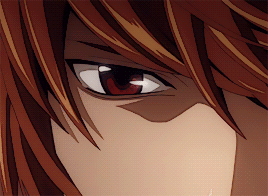
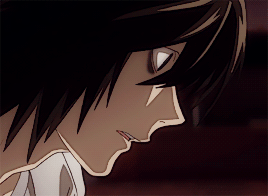
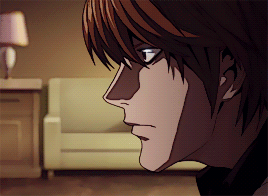
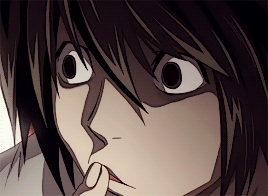
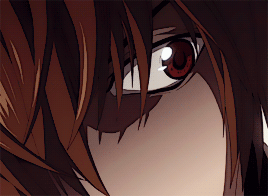
Ah, yes. If I were in Kira’s shoes, in the current situation, I’m sure I’d order L’s death.
2K notes
·
View notes
Text
Death Note: anti-hero idealism
Warning! Major spoilers ahead.
What would you do if you discovered a notebook that could kill people just by writing their names on the pages? Would you kill for fun? Impose a new world order? Think you’re a god? When Light Yagami discovers the titular article, he decides to do all three. And what results is an enthralling exploration of the human condition, specifically the complex interplay of arrogance, idealism and power.
Quick recap: Light Yagami is the genius son of a detective and his wife. One day, outside his school, he sees a notebook drop from the sky. When he picks it up, he discovers that it is a Death Note, with instructions written inside for its use. Suddenly struck by radical idealism after testing it out twice and realizing it was legit, Light begins to plan out what could essentially be called a systematic genocide...only it was with criminals broadcast on the news. Acceptable? His increasing number of murders attracts the attention of radical fans who dub him Kira and swear allegiance, and unfortunately of global investigation agencies. They send their best detective L (who, before his introduction, has already deduced Light resides in Japan) to find out more about this Kira. If that didn’t already make for an exciting cat-and-mouse-mystery-chase, wait till you see the way Light begins outsmarting his own detective dad, who joins L’s team to bring down Kira. Or the way Light has his memory erased just to avoid being caught by L.
I’m sure everyone’s heard of the Socratic maxim: “I know that I know nothing.” It could be considered an old-fashioned warning against the Dunning-Kruger effect (aka overestimating yourself). If Light was a real character who existed at the time, he would have just written down Socrates' name in the Death Note with a slight smirk. In Light’s eyes, he knows he knows best. He knows the deeply corrupt nature of the world, the injustices that go about unpunished, the sinners that are left to roam the earth. And more importantly, he knows that only he really knows that you can murder people by writing down their names in a notebook.
That’s why his character is so fascinating. He embarks on what one could consider a genocide, fuelled with an idealistic vision of making the world a better place (like every fascist leader ever?). And what’s more worrisome, and equally captivating, is that Light is an absolute genius. He’s cold, concise and cunning, keeping the entire investigation wrapped around his little finger. The success of his murders is also tangible: there is a drastic decrease in crime, with much of the public revering Kira and his swift, decisive judgement. And Light is slowly consumed by this power. It slowly becomes less about the world-as-a-better-place and more about Light-as-new-god.
Although you could parallel his trajectory with a fascist, you could also do so with yourself. Or even someone you know. It’s almost natural to become so lost in an ideal or a principle, something we hold so deep to us it alters our actions and judgement forevermore. Light is, after all, just an eighteen year old highschool student. One really couldn’t say he is the villain of the show. He’s perfectly human: he was a disillusioned, cynical child who, upon obtaining power, was filled with an arrogance and idealism that were so intertwined they could not be separated. He wanted better for everyone. He wanted the evil to suffer. At the heart of it all, he was really just being a petulant child. One so gripped by his idealisms, he is even willing to sacrifice his family to see his dreams fulfilled. But still, just a child.
My grandfather once told me that good literature gives you a better insight with human character than anything else. Sometimes even more than personal experience. I believe the same can be said about good anime. While Death Note’s plot is still fantastical, the character types you see provide a realistic insight to human nature. Although I must admit, I stopped watching the series after Light killed Watari and L because...L just deserved better. But I have to pick it up again. After all, I wonder to what fate Light’s trajectory will lead him.
12 notes
·
View notes
Text
Boku No Hero Academia - think X-Men, but cooler
Warning! Mild spoilers ahead.
I feel like everyone’s indulged in a childhood fantasy of being a superhero at some point in their lives. Coupled with attendance to a superhero school with your superhero friends. Anyone recall Xavier’s School for Gifted Youngsters? How about Winx Club’s Alfae College for Fairies? Comics and cartoons round the world have a rich tradition of incorporating academia in their storyworlds, and a part of me suspects that its purpose is to reinvigorate childrens’ imaginations and get them to shift perspective a bit on the trials and tribulations that schools present them with. I mean I know having to save your school from a squad of evil mutants is not exactly everyone’s quintessential high-school experience, but I’m talking about the essence of determination, teamwork, compromise, preservation. Boku No Hero Academia, one of Japan’s most widely watched anime today, encapsulates this essence wonderfully.
BNHA is set in a fantastical rendition of our world where an estimated 80% of the global population has a ‘Quirk’, which is basically what they call superpowers. Considering this large majority, the universe has set up schools for superheroes to train and eventually gain their Pro Hero license, so they can protect themselves and the world from Villains who use their Quirks for their own destructive gain. Pretty cool, right? And when I tell you the kinds of Quirks some of the characters have, you’d be completely awed by the sheer creativity. From superhuman strength, fire and ice blasts, to permeation, to being able to manifest the physical abilities of the food you eat, to just having tape shooting out of your elbows, BNHA has it all. Also I have to make a note of the characters’ impressive range of personalities. They’re endearing, they’re frustrating, they’re pitiful, they’re admirable, they’re so human and so frickin’ inviting. It’s like watching all the different kinds of kids you went to high-school with.
But now that I’ve given you a little picture of the BNHA universe, let me continue with my illustration of how it’s the perfect kind of show to enrich a child’s imagination and possibly influence their idea of what school could really mean. The students and their respective trajectories symbolize what every child often has to learn when going through schooling: the virtue of determination, the fruit borne of preservation, the results achieved through compromise and teamwork.
Take Izuku Midoriya, for instance. Or as he’s more popularly known, Deku. Now when you’re introduced to Deku, you know him simply as the raging superhero fan, keeping a notebook full of observations of his favourite heroes and their Quirks, the strategies they employ in a fight, and even their weaknesses. He is Quirkless - while most kids start gauging their powers at the tender age of nine, Deku has no apparent power that he can control. Yet, his will exceeds the grasp of his own capabilities. He doesn’t care that he’s Quirkess. He’s determined to play a role in this world as a hero, determined to fill in the shoes of those role models he so fervently idolizes. After a chance encounter with his favourite superhero, All-Might (who also happens to be the most powerful superhero in the BNHA universe), Deku is bestowed with a Quirk and begins his amazing journey from the sobbing Quirkless child to one of the most powerful and selfless heroes. He embodies the very idea of will. It’s an inspiring journey to behold. Here is a child who couldn’t give less of a shit what the world thinks of him and is sticking steady to the path he has laid out for himself. In the beginning of the series, his hand breaks after tossing a baseball because he can’t control his newfound Quirk. By the fourth season, he is single-handedly taking on villains that threaten the entire world.
And the entire reason for such a progression was his school experience. The way the show is headed now, it’s probably going to be about a lot more than just their lives at school. However, for fans and followers of the show, the time at U.A. was an unforgettable one. Whether it was his professors who taught and trained him, his fellow peers who helped and shaped him, the various festivals and camps that brought them all closer together, Deku’s journey is an accumulation of all of what he’s learnt, and is continuing to, at his time at U.A. Highschool. U.A. taught him determination and preservation, but it also gave him a family.
It strikes a familiar chord for anyone who has had even the slightest joy in their time in school. The lessons you learn are irreplaceable, the people you meet even more so. And a children’s show is the best way to sow such significant seeds of thought. I do concede that school would be a thousand times more exciting if we all had superpowers and villains in the world to take out, but again I’m talking about the essence of it all. BNHA is a testimony to the joyful, challenging, at-times-so-bloody-frustrating-yet-simultaneously-rewarding school experience.
I must admit, I sort of missed high-school after watching it. Although now I revisit those memories with the incorporation of some fun Quirks and maybe an Aizawa-sensei in the mix.
0 notes
Text
Why is no one talking about this scene like look at how crisp the animation is and the music is just amazing they really blessed us today
5K notes
·
View notes
Photo

“They did it…They defeated the villain!!”
I’ll never get over Bakugou smiling because Deku and All Might are okay. He did it without thinking. Todoroki knows he cares and teases him only with one look, this is so precious. Kacchan you’ll never be honest, huh?
13K notes
·
View notes
Text
The universality of Shingeki no Kyojin in its epic depiction of war
Warning! Spoilers ahead.
Do you think you have the stomach to watch people getting eaten by huge, humanoid titans? If so, you need to scour through Gogoanime and find yourself a good quality version of Shingeki no Kyojin (English: Attack on Titan). Not only does the story fulfill epic-style proportions of screenwriting, thanks to Hajime Isayama, it is also a heartbreakingly resonant reminder of the universal fuckery brought about by war and conflict, as seen through the eyes of children who were collateral in a centuries-old feud.
Sound familiar? It’s the history of all-conflict-ever compacted into the riveting story of a fictional island world wherein humanity has been forced to live behind gigantic walls for fear of man-eating titans that surround them. The irony of this world being called Paradis is not lost on the viewers, considering it's practically a prison. Only worse, because the people living within those walls have no idea they are imprisoned by anyone. When the show starts, you are just as clueless as they are. Eren, Mikasa and Armin, three of the most important protagonists, watch their lives disintegrate when the Colossal and Armoured Titan break through the outermost wall and their town is rampaged by the monsters. Your fists clench and your heart drops as you watch Eren’s unflinching gaze, imbued with unbelievable horror - at his mother being ripped apart and eaten by a smiling titan. Much like Eren, you find it impossible to look away.
From that point on, the story takes many wonderfully complicated and compelling twists and turns. As the characters learn more of their situation and circumstances, as well as their role in it all, you grow more attached to and fond of the characters and their unwavering determination and hope, in spite of an increasingly grotesque war against mankind and titans. But what exactly makes this story so epic? Why is it that out of so many war stories I have read and seen, that this one, completely animated and set in an entirely fictional world, has struck the deepest chord?
To be succinct in my explanation would be doing a disservice. Everything about this show - from the characters, to the dialogue, to the soundtracks - crafts a stunning and deeply familiar tale of trials and tribulations of conflict, of the collateral, of the deep existentialism felt when one encounters such a war-ravaged dystopia.
There is a distinctly human variety in the character types in the show. It shows those who come from comfort, those who crave comfort, those who reject comfort, those who are too traumatized to imagine comfort. It depicts indifference and passion most artfully. But more than just variety, it also takes you along a very believable and simultaneously distressing journey when it comes to the characters' development.
Take Eren Jaeger, for instance: the primary protagonist of the show starts off as a deeply traumatized, angry young boy whose entire life tunnel-visions down to avenging his mother’s death and reclaiming his freedom from the inexplicable monsters that threaten it constantly. When it is revealed that Eren too can access the power of the titans and turn into one, he begins using his titan form to further that same mission. However, when he realizes that Paradis is really just an island prison, with a neighbouring power sending human-prisoners-turned-titans that threaten Eren and his people, his character does a complete 180. Imagine learning that for hundreds of years, and for all of your life, your freedom was consciously being stripped away by a power you didn't even know existed. The sudden uncanny cold acceptance and single-minded determination seen within Eren in the latest season is a change the viewers are shocked but not surprised by. If the plot wasn’t delightful enough, the dialogue is movingly powerful. Shingeki no Kyojin touches on deeply personal topics such as freedom, regret, resolve, deception, loss, ignorance, hope; and it is done in ways that are so natural and bound to the world that it hits in a manner token mentions could not have. Maybe the aforementioned thematic elements are common to every war-story, but Shingeki no Kyojin’s style of thematic exposition is something else entirely, retaining both an organic sense of authenticity plot-wise and a perpetual feeling of 'holy-shit-what-on-earth-could-happen-next’.
And can I just say here that the soundtrack to this show is one of the most beautiful things you will ever hear? The two studios, Wit Studio (seasons 1-3) and MAPPA (season 4) hired full blown orchestras to record the hauntingly beautiful OST that accompanies some incredibly jaw-dropping scenes. I said epic-style proportions!
I think many people don’t end up investing time watching anime because they feel as though that realm of fictionality, where even the characters and the world do not look ‘real’, will not hold lessons or experiences that could leave a lasting impression. However, Shingeki no Kyojin is an exemplary case study of the innately humanly complex: pain. Any individual who has not experienced conflict,but merely studied history of war, can understand and resonate with this hurtful feeling. The empathy it inspires is sincere, considering this pain is focalized through the experiences of children. Amongst the community of anime-watchers, it is considered one of the best ever created. And while I am in agreement so far, I am excitedly anticipating how the rest of season 4 goes to know for sure.
5 notes
·
View notes
Text



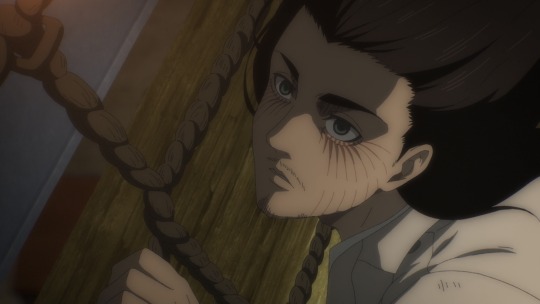






attack on titan season 4 ep 67 : eren, armin, & mikasa
75 notes
·
View notes
Text
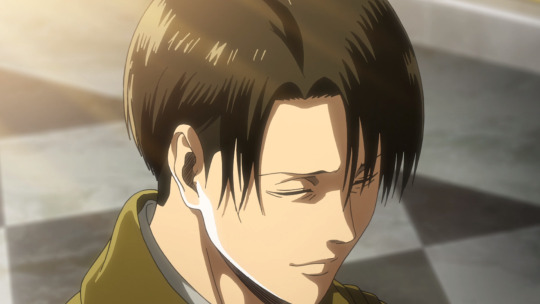
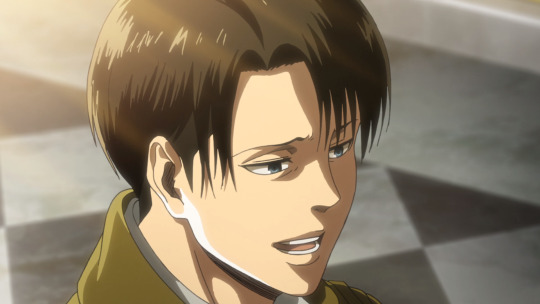
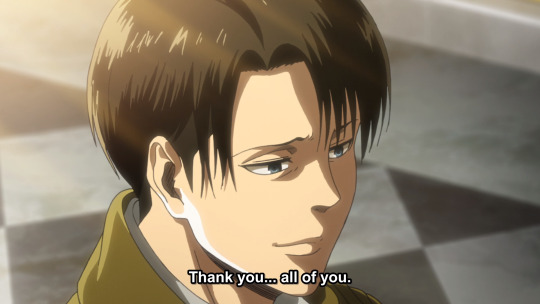
This man is so strong. He has the power to smile after he sees his uncle, who was like a father to him in his childhood, and who, I bet, he cared about, dying. We need to take a lesson from him. Be strong, no matter what happens.
198 notes
·
View notes
Text
Sailor Moon has literally the best transformation scenes in history Tell me I’m Wrong
0 notes

